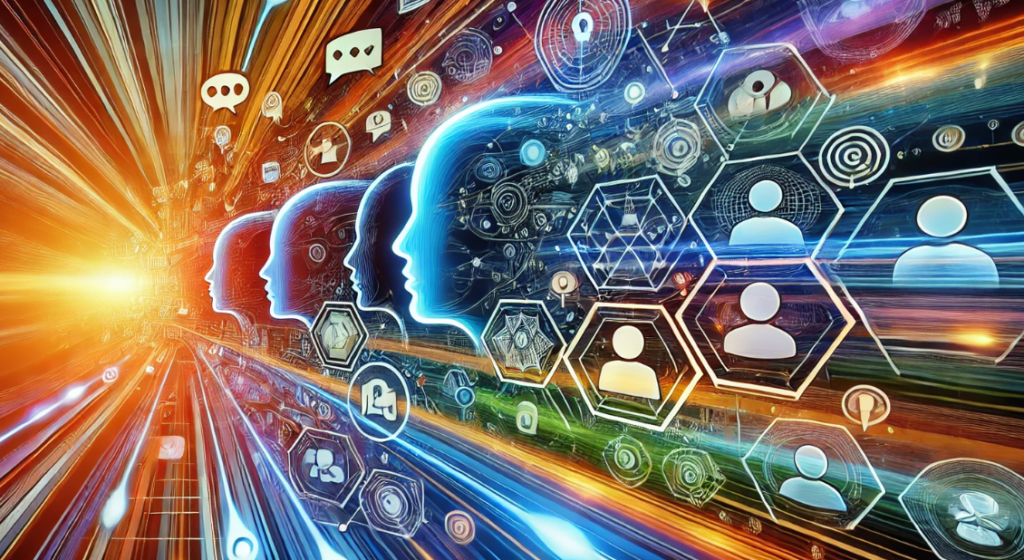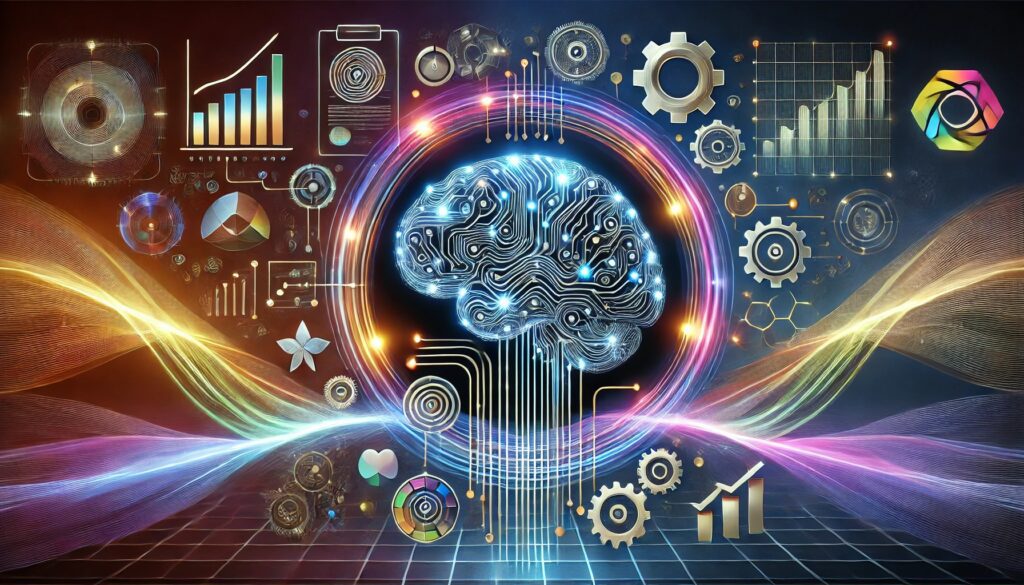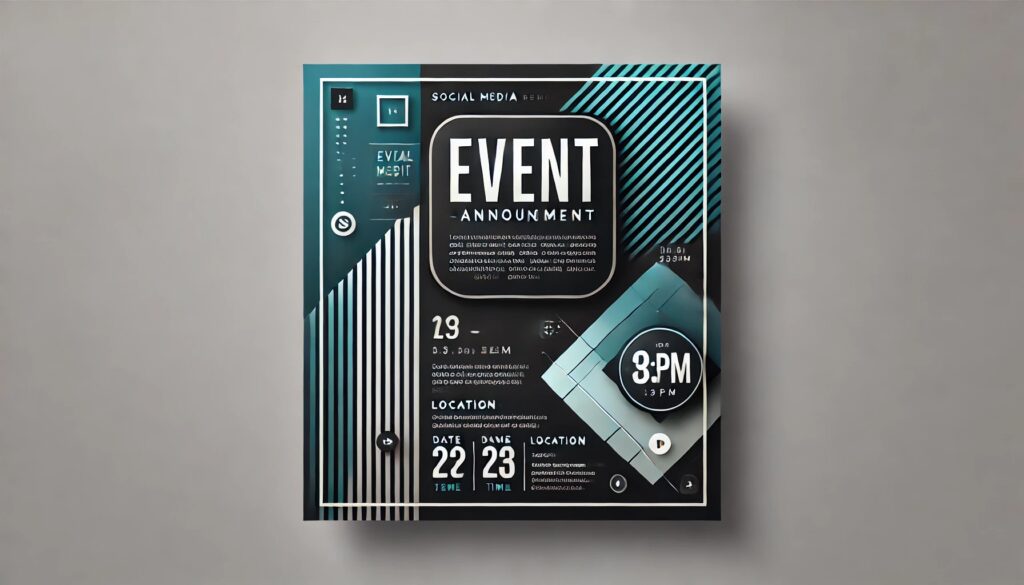
The Rise of Remote Work: Why It’s Here to Stay
In just a few short years, remote work has gone from a niche concept to the norm. The global shift was accelerated by the pandemic, but even after offices reopened, many people opted to continue working from home. Flexibility, better work-life balance, and reduced commuting times have all contributed to the growing popularity of this model.
And it’s not just about convenience—remote work has redefined productivity, allowing people to get more done in less time by cutting out the distractions of a traditional office.
Companies are embracing this change too. Studies show that businesses can save on operational costs, hire talent from across the globe, and even experience a boost in overall productivity. The future of work looks more virtual than ever before, but with this shift comes a set of new challenges. How can we stay connected, collaborate effectively, and maintain team spirit in a fully remote environment?
Challenges of Remote Collaboration in a Digital World
Working from home or in various locations offers many perks, but it’s not without its drawbacks. The lack of physical presence can lead to issues in collaboration and communication. Many teams rely heavily on face-to-face interactions—be it for brainstorming, project management, or team bonding. Without those in-person moments, it can be hard to maintain the same level of productivity and creativity.
Miscommunication is one of the biggest challenges remote teams face. When you’re relying on emails, video calls, and messages, things can easily get lost in translation. Delayed responses, unclear instructions, and scheduling conflicts across different time zones can slow down workflows and frustrate teams. Plus, the sense of isolation can sometimes lead to burnout.
That’s where tools like ChatGPT Canvas come in, designed to address the gaps left by traditional remote work setups and enhance collaboration in ways that mimic the energy of in-person teamwork.
Introducing ChatGPT Canvas: A Game-Changer for Remote Teams
So what exactly is ChatGPT Canvas? Imagine a virtual workspace that combines the power of AI-driven insights with the flexibility of digital tools, creating a space where teams can meet, brainstorm, plan, and collaborate in real-time—no matter where they are. Think of it as your all-in-one virtual office, but without the distractions of a physical space.

ChatGPT Canvas is more than just a communication tool. It’s an interactive workspace where team members can collaborate on ideas, map out projects, and engage in meaningful discussions with the help of AI. Whether you’re holding virtual meetings, managing projects, or brainstorming the next big idea, Canvas provides a dynamic platform that’s always on hand, ready to help guide the conversation or offer suggestions.
By integrating ChatGPT’s capabilities into the workspace, the tool offers smart recommendations, automates repetitive tasks, and ensures that communication remains clear and effective. This innovative approach addresses the challenges remote teams face head-on, bridging the gap between human creativity and AI assistance.
What Makes ChatGPT Canvas Unique?
What sets ChatGPT Canvas apart from other collaboration tools? For starters, it combines the best of AI and human intelligence. While other platforms focus on communication, ChatGPT Canvas actively helps teams think, organize, and create. Need ideas for a marketing campaign? The AI can help brainstorm. Trying to summarize meeting notes? The AI handles that too. The interactive, adaptive environment makes sure no one feels disconnected or lost in the conversation.
One of the most unique features is its ability to streamline workflows. With built-in templates for planning, reporting, and project tracking, you don’t need to switch between multiple apps to get things done. Plus, the real-time collaboration allows everyone on your team to contribute simultaneously, eliminating the back-and-forth that often slows remote work.
Perhaps the most powerful feature is the contextual AI that can analyze your conversations, offer intelligent insights, and even remind you of tasks that might have slipped through the cracks. The AI doesn’t just assist—it learns from your workflows, adapting its suggestions based on what works best for your team.
Bringing Flexibility to Your Virtual Workspace
In today’s world, flexibility is everything. Whether your team is spread across continents or simply working different hours, ChatGPT Canvas makes it easy to stay connected and productive. You can jump into your workspace at any time, whether it’s for a quick check-in, project update, or a brainstorming session. And because it’s powered by AI, Canvas adapts to your team’s specific needs, learning your workflow and helping to optimize it.
For teams that crave more dynamic collaboration, Canvas’s customizable layout allows you to structure meetings, whiteboard ideas, and assign tasks with ease. It’s not just a one-size-fits-all solution—each team can tailor Canvas to reflect their unique workflow, whether it’s for agile project management, creative brainstorming, or detailed strategic planning. Plus, integrating with existing tools like Slack, Trello, or Google Workspace means no disruption to your current setup.
Enhanced Communication: Breaking Down Barriers with AI
One of the biggest hurdles in remote work is communication breakdown. Misunderstandings are common, and long email threads or scattered messages can lead to confusion. This is where ChatGPT Canvas shines. By integrating AI into the workspace, the platform helps simplify communication and ensures that ideas and instructions are clear, concise, and easily understood by everyone involved.

The AI in Canvas can assist in summarizing long conversations, ensuring that everyone is on the same page without sifting through endless chat logs. It also provides real-time translation, making global collaboration smoother for teams working across different languages. Whether it’s a simple clarification or a more in-depth analysis of the conversation, Canvas’s AI is there to guide the team toward effective communication, bridging gaps that often arise in remote work.
Another standout feature is contextual reminders. If a task is mentioned during a meeting, Canvas’s AI can create an automatic follow-up or reminder to ensure no action items slip through the cracks. This feature alone helps cut down on the communication lag that often hinders remote teams.
Streamlined Project Management: Everything in One Place
Keeping projects on track remotely can be a challenge. Between managing tasks, setting deadlines, and ensuring everyone is on the same page, project management often requires several different tools and platforms. ChatGPT Canvas simplifies this by providing an all-in-one solution for managing workflows.
With built-in project management tools, teams can set deadlines, assign tasks, track progress, and manage workloads, all within the same virtual workspace. There’s no need to jump between applications like Trello or Asana—Canvas seamlessly integrates those functionalities, offering real-time updates on task progress.
Canvas also introduces automated reporting, reducing the burden of manual status updates. The AI can generate summaries of project timelines, identify potential bottlenecks, and even predict future delays based on current performance trends. This gives managers a bird’s-eye view of the entire project, allowing them to make informed decisions quickly and effectively.
Collaboration Without Limits: How Teams Benefit
In a traditional office, collaboration happens organically. Ideas are shared in hallway chats, and spontaneous meetings lead to new breakthroughs. Recreating that collaborative energy in a virtual setting has always been a challenge—until now. ChatGPT Canvas takes remote collaboration to a whole new level, enabling teams to work together seamlessly, as if they were sitting in the same room.
Canvas’s real-time collaboration tools allow team members to simultaneously brainstorm, edit documents, and share ideas. The AI assists by offering relevant suggestions, gathering resources, or even helping generate content. For example, if a team is working on a marketing strategy, ChatGPT can pull up data, generate content outlines, or propose creative ideas.
Because everything happens in real time, there’s no lag or waiting for input from different members. This encourages more fluid collaboration, where everyone can contribute and interact with the project simultaneously. Whether it’s a simple discussion or an intense brainstorming session, Canvas ensures that the collaborative spark stays alive in the digital workspace.
Boosting Productivity with AI-Powered Workflows
When it comes to remote work, keeping productivity high can be a challenge. Teams often struggle to stay focused, especially without the structure of a traditional office. ChatGPT Canvas tackles this head-on by integrating AI that can automate repetitive tasks, streamline workflows, and offer smart suggestions that help teams work more efficiently.

The AI in Canvas is designed to support the team’s productivity, automating routine tasks like setting reminders, drafting emails, or even handling meeting agendas. This allows team members to focus on the more creative or strategic elements of their work, improving productivity across the board.
Additionally, the AI monitors project timelines and flags potential slowdowns, helping teams stay on schedule. By analyzing how tasks are progressing, Canvas can offer suggestions on how to reprioritize workloads or reassign resources, ensuring that deadlines are met without overwhelming anyone on the team.
How ChatGPT Canvas Supports Creativity and Innovation
Creativity can sometimes be stifled in a remote setting, where spontaneous brainstorming sessions are harder to facilitate. ChatGPT Canvas, however, creates a space where creativity can thrive. By using AI-generated ideas and real-time brainstorming features, it helps kick-start innovative thinking when teams hit a creative block.
For example, imagine you’re working on a new marketing campaign and need some fresh ideas. Instead of waiting for a brainstorming meeting, you can use ChatGPT Canvas to generate several creative concepts instantly. The AI pulls from vast amounts of data and trends to offer relevant suggestions, helping the team get inspired and think outside the box.
Not only does the AI suggest ideas, but it also helps teams refine them. Whether you’re working on content, design, or product development, Canvas assists in perfecting the small details, allowing your team to push creative boundaries and explore new possibilities. The virtual workspace becomes a dynamic hub for continuous innovation.
Customization for Every Industry: Tailoring Canvas to Fit Your Needs
One of the key strengths of ChatGPT Canvas is its ability to adapt to different industries. Whether you’re working in tech, marketing, finance, or education, the platform can be tailored to meet your team’s specific needs. The flexibility of Canvas ensures that it supports your workflow, regardless of the field.

For instance, in marketing, teams can use Canvas to brainstorm creative campaigns, generate copy ideas, or analyze customer data to identify trends. Meanwhile, software development teams can take advantage of its agile project management tools, collaborating on code, tracking sprints, and getting AI-generated suggestions for solving technical challenges.
In industries like finance or law, where confidentiality and data security are crucial, Canvas offers secure environments for team collaboration, while helping with automated documentation and compliance tracking. The AI can also assist in generating reports, summaries, and other paperwork, allowing professionals to focus on high-level tasks rather than administrative work.
This customization is what makes ChatGPT Canvas stand out—it’s not just a general tool, but a platform that molds itself to the specific requirements of any industry.
Is ChatGPT Canvas the Future of Remote Work?
With more businesses and industries shifting toward remote-first models, it’s hard to ignore the growing impact of ChatGPT Canvas. By combining the power of AI with the flexibility of digital workspaces, Canvas addresses the core challenges of remote work—lack of collaboration, communication hurdles, and productivity drops.
Canvas represents a new way of working where teams can collaborate, communicate, and create in a single, seamless environment. It’s more than just a tool—it’s a platform that encourages innovation and productivity, no matter where team members are located. As more companies adopt hybrid and remote work models, AI-powered virtual workspaces like ChatGPT Canvas will become integral to maintaining competitive advantages in an increasingly digital world.
The future of work, as many are predicting, is not just about being able to work from anywhere. It’s about ensuring that collaborative energy is maintained, that creativity doesn’t suffer, and that workflows are optimized—all without sacrificing flexibility. ChatGPT Canvas is at the forefront of making that future possible.
Real-World Applications: Success Stories from Companies Using Canvas
Several companies across different industries have already started to see the benefits of using ChatGPT Canvas. Take, for example, a global marketing agency that struggled with managing campaigns across teams scattered in different time zones. By integrating Canvas into their daily workflow, they were able to streamline content creation, project management, and client collaboration all in one place. The AI assisted in generating creative content and helped the team stick to tight deadlines by automating reports and sending reminders.
In another case, a software development firm used Canvas to enhance their agile processes. Developers could collaborate on code reviews, assign tasks, and track bugs all within the platform. With ChatGPT assisting in suggesting code improvements and generating documentation, the team’s overall efficiency increased, and projects were delivered faster than before.
Even within the healthcare sector, teams are using Canvas to collaborate on research, share findings, and manage patient care data securely. The AI helps with automated reporting, allowing healthcare professionals to spend less time on paperwork and more time on patient care.
These success stories demonstrate that ChatGPT Canvas isn’t just a future concept—it’s already transforming the way teams work today.
Challenges to Overcome: Is Virtual Work for Everyone?
While ChatGPT Canvas offers numerous advantages, it’s important to recognize that virtual work still comes with challenges that need to be addressed. For some, the lack of face-to-face interaction can lead to feelings of isolation or disconnection from team members. Even with an advanced AI-powered platform, maintaining team cohesion remotely can be difficult if the personal element is lost.

Not all tasks or industries are suited for fully remote operations, either. For example, industries that require hands-on work, like manufacturing or healthcare, may struggle to go completely virtual, despite the benefits of enhanced communication and collaboration tools.
Additionally, adopting new technology always comes with a learning curve. Companies might face resistance to change, especially from team members who are more comfortable with traditional in-office workflows. Training employees to use the full potential of AI-driven tools like Canvas is essential to ensuring the transition is smooth and productivity remains high.
Security in Virtual Workspaces: Protecting Data in a Remote Era
As companies move toward more remote and hybrid work environments, the importance of data security cannot be overstated. ChatGPT Canvas ensures that remote work is both convenient and secure, offering robust protection for sensitive information.
Canvas has built-in features like end-to-end encryption to protect communications and data from unauthorized access. For industries that handle confidential information—like finance and law—Canvas provides secure environments for sharing and collaborating on sensitive documents. Additionally, multi-factor authentication and AI-driven threat detection ensure that the platform remains secure at all times.
With cybersecurity threats on the rise, especially as more data is shared online in remote settings, ChatGPT Canvas goes beyond convenience to ensure that data protection remains a top priority. This focus on security allows businesses to adopt remote work without sacrificing the integrity and confidentiality of their operations.
Resources for Further Reading
Microsoft’s Case Studies on Remote Work Solutions: Microsoft Case Studies
Remote Work Trends and Best Practices
Exploring the future of remote work and its impact on industries:
Buffer’s State of Remote Work 2024 report: Buffer 2024 Remote Work Report
Best practices for managing remote teams:
Harvard Business Review, “How to Manage Remote Work Effectively” HBR Remote Work Guide
ChatGPT Canvas and AI in Virtual Collaboration
Introduction to ChatGPT Canvas and its potential as a virtual workspace:
OpenAI Blog on AI Tools for Collaboration: OpenAI Collaboration
How AI-powered tools are reshaping remote work:
“AI in the Workplace: Revolutionizing Team Collaboration,” Forbes Technology Council: AI & Remote Work
AI in Project Management
Streamlining project management with AI:
Gartner’s Guide to AI in Project Management: Gartner AI Report
Integrating AI to improve project outcomes:
PMI’s AI and the Future of Project Management: PMI AI Resources
Security and Privacy in Virtual Workspaces
Best practices for securing remote work environments:
“Securing Remote Work: The New Normal,” McKinsey & Company: McKinsey Remote Security
Ensuring data protection in AI-powered platforms:
“Data Privacy in the Age of AI,” TechRepublic: TechRepublic AI Data Privacy
Virtual Collaboration Tools and Their Impact on Businesses
How virtual collaboration tools are transforming productivity:
“Top Tools for Remote Team Collaboration in 2024,” TechRadar: TechRadar Remote Tools
Case studies of companies adopting AI-driven virtual workspaces: